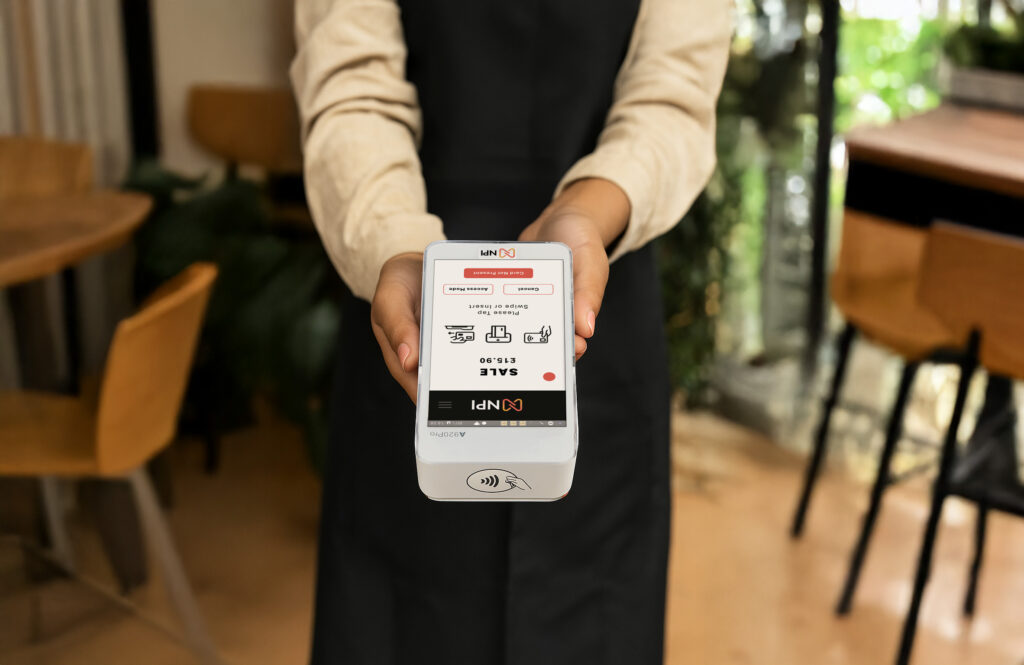Multi-currency processing is transforming how UK businesses trade with international customers. Whether you’re a London boutique welcoming tourists, an online retailer shipping worldwide, or a B2B company serving European clients, the ability to accept payments in multiple currencies can significantly enhance your customer experience whilst reducing unnecessary costs.
As British businesses increasingly operate in global markets, understanding multi-currency processing has become essential rather than optional. The right payment solution allows your international customers to pay in their preferred currency, improving conversion rates and building trust across borders.
Let’s explore how this powerful payment capability can benefit your UK business and what you need to know to implement it successfully.
What Is Multi-Currency Processing?
Multi-currency processing enables businesses to accept card payments in various currencies beyond British pounds. When an international customer makes a purchase, they can complete the transaction in their home currency—euros, US dollars, Australian dollars, or dozens of other options.
How It Works
When a customer from Germany visits your shop or website, traditional payment systems convert their euros to pounds at the point of sale. With multi-currency processing, however, the customer sees prices and pays in euros, whilst you receive settlement in your preferred currency.
This service typically operates through two main methods:
Dynamic Currency Conversion (DCC) allows customers paying with foreign cards to choose whether they’d like the transaction processed in pounds or their home currency at the point of sale. This gives customers control and transparency over exchange rates.
Multi-Currency Merchant Accounts enable businesses to hold and receive funds in multiple currencies, particularly beneficial for e-commerce businesses trading regularly with specific international markets.
Why UK Businesses Need Multi-Currency Payment Solutions
The benefits of implementing multi-currency processing extend far beyond simple convenience.
Enhanced Customer Experience
International customers feel more comfortable paying in familiar currencies. According to UK Finance, customers are significantly more likely to complete purchases when prices are displayed in their home currency—reducing cart abandonment and increasing conversion rates.
Price transparency builds trust. When customers see costs in their own currency, they understand exactly what they’re paying without mentally calculating exchange rates or worrying about unexpected conversion fees.
Competitive Advantage
In tourist-heavy locations like central London, Edinburgh, or Bath, businesses offering multi-currency processing stand out from competitors. International visitors actively seek establishments that accept their currency, making your business their preferred choice.
Reduced Costs and Better Rates
Whilst it might seem counterintuitive, accepting foreign currency can actually reduce costs. When customers pay in pounds using foreign cards, their issuing banks apply conversion rates plus fees. With DCC, you can offer competitive rates whilst earning a small commission—creating a win-win situation.
Compliance and Transparency
The Payment Services Regulations require transparency in currency conversion. Proper multi-currency processing systems ensure full compliance by clearly showing customers the exchange rate and total cost before they confirm payment.
Types of UK Businesses That Benefit Most
Whilst virtually any business serving international customers can benefit, certain sectors gain particularly strong advantages from multi-currency processing.
Retail and Hospitality in Tourist Areas
Hotels, restaurants, attractions, and shops in popular tourist destinations process thousands of foreign transactions annually. Offering currency choice improves customer satisfaction scores and encourages repeat visits.
E-Commerce and Online Retailers
Online businesses shipping internationally should absolutely consider multi-currency processing. Research by the Office for National Statistics shows UK e-commerce exports continue growing, with international sales representing an increasingly significant revenue stream.
Displaying prices in local currencies increases trust and reduces purchase hesitation. Customers in the United States, for instance, prefer seeing dollar amounts rather than calculating pound conversions.
B2B Companies with International Clients
Business-to-business operations serving European, American, or Asian markets benefit from simplified invoicing and payment acceptance in clients’ preferred currencies. This professionalism strengthens business relationships and streamlines accounts receivable processes.
Event Venues and Conference Centres
Venues hosting international conferences, exhibitions, or sporting events process numerous foreign transactions in short periods. Efficient multi-currency processing speeds up transactions and improves attendee experience.
Key Features to Look for in Multi-Currency Solutions
Not all multi-currency payment systems offer the same capabilities or value. When selecting a provider, consider these essential features.
Wide Currency Support
Ensure your provider supports the currencies most relevant to your customer base. Common requirements include euros, US dollars, Swiss francs, Japanese yen, and Australian dollars, but businesses in specific sectors may need more exotic currencies.
Competitive Exchange Rates
Exchange rates directly impact both your revenue and customer satisfaction. Look for providers offering transparent, competitive rates without hidden markups. New Payment Innovation provides clear rate information upfront, ensuring you understand exactly what you’ll pay.
Real-Time Conversion
Modern systems should calculate conversions instantly at the point of sale, giving customers immediate confirmation of the total amount in their chosen currency.
Integration Capabilities
Your multi-currency processing solution must integrate seamlessly with existing payment terminals, e-commerce platforms, and accounting software. Compatibility prevents operational headaches and ensures smooth transaction flow.
Settlement Flexibility
Consider whether you want settlements in multiple currencies or prefer everything converted to pounds. Different business models suit different approaches—tourism businesses might prefer pound settlements, whilst importers/exporters may benefit from holding multiple currencies.
Comprehensive Reporting
Detailed reporting separating transactions by currency helps with accounting, reconciliation, and financial planning. Quality providers offer sophisticated reporting tools that make multi-currency management straightforward.
Setting Up Multi-Currency Processing
Implementing multi-currency processing for your UK business involves several straightforward steps.
Choose the Right Provider
Research payment providers specialising in international transactions. Look for established companies with strong reputations, transparent pricing, and excellent customer support.
New Payment Innovation offers comprehensive multi-currency solutions designed specifically for UK businesses, with expert guidance throughout the setup process.
Complete the Application
You’ll need standard business documentation plus additional information about your international trading:
- Expected transaction volumes by currency
- Countries where you conduct business
- Current international sales figures
- Business registration and banking details
Configure Your System
Work with your provider to configure currency options, set exchange rate parameters, and establish settlement preferences. For physical businesses, this includes programming card terminals to offer currency choice at checkout.
E-commerce businesses need website integration enabling automatic currency detection based on customer location or allowing manual currency selection.
Train Your Staff
Ensure team members understand how to offer currency options to customers and process multi-currency transactions correctly. Proper training prevents confusion and maximises the benefits of your new capability.
Managing Currency Risk
Accepting multiple currencies does introduce some currency risk, particularly if you hold balances in foreign currencies. However, several strategies minimise this exposure.
Regular Settlement
Converting foreign currency receipts to pounds regularly reduces exposure to exchange rate fluctuations. Many businesses settle daily or weekly rather than holding foreign currencies long-term.
Forward Contracts
Larger businesses with substantial international revenue might consider forward contracts that lock in exchange rates for future periods, protecting against adverse movements.
Diversification
If you both receive and pay expenses in certain currencies (for example, purchasing stock in euros whilst also receiving euro payments), natural hedging occurs, reducing overall risk.
Costs and Fees
Understanding the cost structure of multi-currency processing helps you evaluate whether the benefits justify the investment.
Transaction Fees
Most providers charge slightly higher fees for foreign currency transactions compared to domestic payments—typically an additional 0.5% to 1.5%. However, DCC commissions often offset these costs.
Exchange Rate Margins
Providers include small margins in exchange rates. Competitive providers keep these minimal (typically 2-3%) whilst still offering rates better than most credit card companies charge customers.
Setup and Monthly Fees
Some providers charge setup fees or higher monthly account fees for multi-currency capabilities. New Payment Innovation offers transparent pricing structures with no hidden charges, making budgeting straightforward.
Equipment Costs
Modern card terminals with multi-currency processing capabilities may cost slightly more than basic models, but the investment typically pays for itself quickly through increased international sales.
Legal and Regulatory Considerations
UK businesses must comply with several regulations when offering multi-currency processing.
Payment Services Regulations
The Financial Conduct Authority oversees payment services, requiring clear disclosure of exchange rates and fees before customers complete transactions. Your system must display this information prominently.
Customer Choice
Regulations mandate that customers must have genuine choice when offered DCC. Staff cannot pressure customers into selecting foreign currency options, and terminals must present both currencies clearly and impartially.
Record Keeping
Maintain detailed records of multi-currency transactions for accounting and tax purposes. HMRC requires accurate reporting of foreign currency income, typically converted to pounds using appropriate exchange rates.
Maximising the Benefits
Once you’ve implemented multi-currency processing, several strategies help maximise its value.
Promote the Capability
Ensure customers know you accept multiple currencies. Display signs at entrances, include information on your website, and train staff to proactively offer the option to international customers.
Monitor Performance
Track conversion rates, transaction values, and customer feedback regarding your multi-currency offering. Data helps you refine your approach and demonstrate return on investment.
Consider Dynamic Pricing
Some e-commerce businesses go beyond simple conversion, setting prices strategically for different markets. For example, US prices might not be direct pound conversions but optimised for American market conditions.
Future of Multi-Currency Processing
The landscape continues evolving. Emerging technologies like blockchain-based payments and central bank digital currencies may eventually influence how businesses handle international transactions.
However, for the foreseeable future, multi-currency processing through established payment networks remains the practical, secure solution for UK businesses serving international customers.
Start Accepting International Payments Today
If your UK business serves international customers—whether online or in person—multi-currency processing offers clear advantages. Improved customer experience, increased conversion rates, and competitive positioning make this capability increasingly essential in our globalised economy.
New Payment Innovation specialises in helping UK businesses implement effective multi-currency payment solutions. Our team understands the unique challenges of international trade and provides technology and support to help you succeed in global markets.
Contact us today on 023 8001 9998 or visit npi.uk to discuss your international payment needs. We’ll provide a tailored solution that helps you accept payments from customers worldwide whilst maintaining the simplicity and security you expect from your payment provider.
Expand your business horizons with seamless multi-currency processing—your international customers will thank you.







